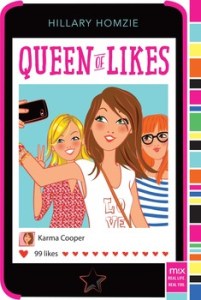
Middle grade is without a doubt magical.
And by magical, I don’t mean that it’s all witches, elixirs, and pixies. But there’s certainly plenty of that. You’ll find gobs of delicious magic in lauded books such as The Girl Who Drank the Moon by Kelly Barnhill and The Marvellers by Dhonielle Clayton.
However, middle grade encompasses so many kinds of books, from contemporary realistic fiction to science fantasy from biography to adventure.
What I mean by magic—is the magic of childhood itself. After all, middle grade focuses on kids ages 8 until twelve—the very center of childhood. This is when you’re old enough to have hours of independent time away from your parents and yet not ready for the individuation shuffle away from parents and caregivers. At this age, while friendships and peers rule the day, children seek the guidance of kind and wise mentors. This might be parents, teachers, coaches, club advisors or yes, a witch, wizard or conjurer.
However, you don’t need to write about mystical creatures like, say, unicorns in order to find magic. You just need to remember what it is like to be a child.

When I was writing one of my middle grades, Queen of Likes, I momentarily forget what it was like to be a kid. In that book, 12-year-old Karma Cooper gets her phone taken away. At first, I got right to this punishment and had Karma communicating her regret.
Wrong! I had forgotten what it felt like to be a seventh grader. Instead, I was writing the text like—gulp–a mom. At the time, I hated how my kids and their friends were on the phone in the car and didn’t talk to each other. I didn’t allow phones at the kitchen table. I constantly made them put their phones away. But a kid might feel different. She might feel as though Mom is patently unfair. In revision, I had to remember how Karma felt about her phone, not me, the Mom. When I had Karma name her phone Floyd, I got back into a child head space.
One of my favorite authors is Beverly Clearly because she remembered what it was like to be a child.

For example, Cleary’s Ramona Quimby, Age 8, focuses on tension over a beloved eraser. As an adult, it is too easy to forget the attachment that children have to small inanimate objects. Sometimes as grown-ups, we see things merely as tools whereas to a child an eraser is an entire sensory experience and imbued with magic. When Ramona first receives her eraser, this is how her new treasure is described: “smooth, pearly pink, smelling softly of rubber, and just right for erasing pencil lines.”
Unfortunately, this treasure is taken away from her on the bus by some boys. To an adult, losing an eraser may seem trivial, but to Ramona, it’s a catastrophe. From an eight-year-old perspective, it is not just a common school supply, but a “beautiful pink eraser.”
It’s so easy to forget what it’s like to be truly young. In order not to forget, my kids’ preschool teacher, Mz. Lori, would have us adults do this exercise.
- Lift up your hands over your head.
- Hold them there for 3-5 minutes (it’s not easy) and march in place.
That is what is feels like to be a young child out on a walk and holding an adult’s hand.
What do you do to get back into the child mindset?
Hillary Homzie is the author of the Ellie May chapter book series (Charlesbridge, 2018), Apple Pie Promises (Sky Pony/Swirl, 2018), Pumpkin Spice Secrets (Sky Pony/Swirl, 2017), Queen of Likes (Simon & Schuster MIX 2016), The Hot List (Simon & Schuster MIX 2011) and Things Are Gonna Be Ugly (Simon & Schuster, 2009) as well as the Alien Clones From Outer Space (Simon & Schuster Aladdin 2002) chapter book series. She’s also a contributor to the Kate the Chemist middle grade series (Philomel Books/Penguin Random House). And her nonfiction picture book, If You Were a Princess: True Stories of Brave Leaders From Around the World is a look at historical and current princesses from many diverse lands who have made their mark (Simon & Schuster, August 2022). During the year, Hillary teaches at Sonoma State University. In the summer, she teaches in the graduate program in children’s literature, writing and illustration at Hollins University. She also is an instructor for the Children’s Book Academy.
She can be found at hillaryhomzie.com and on Instagram, her Facebook page as well as on Twitter

Yes, it’s so true that you don’t need magical creatures to create the magic of being a middle grader in a story. One way I remember those times is to read middle grade stories in a lot of genres, rather than just fantasy.
Yes, Natalie. I try to do that too. I do need to jump into more middle grade biographies though!